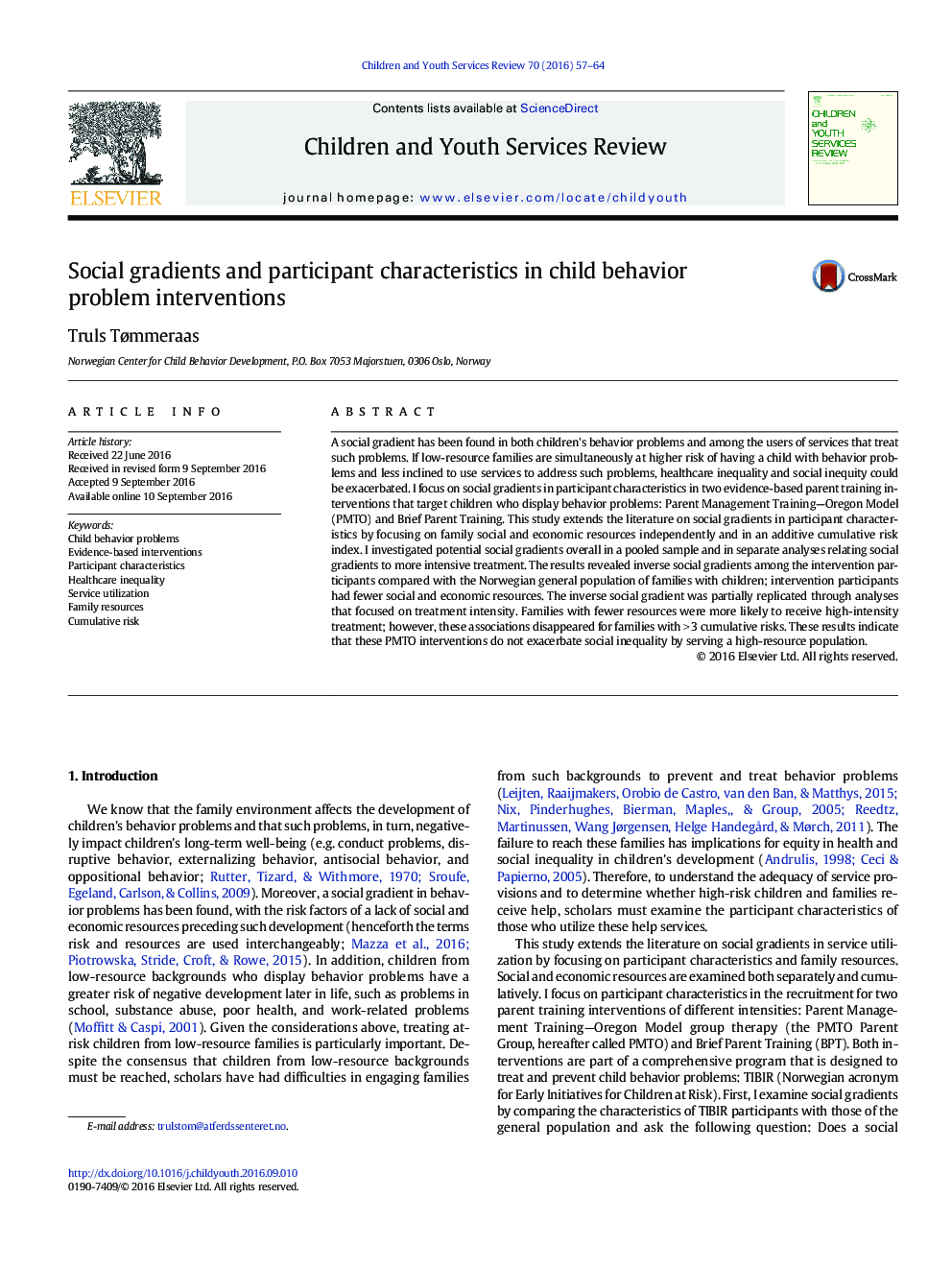| Article ID | Journal | Published Year | Pages | File Type |
|---|---|---|---|---|
| 4936620 | Children and Youth Services Review | 2016 | 8 Pages |
Abstract
A social gradient has been found in both children's behavior problems and among the users of services that treat such problems. If low-resource families are simultaneously at higher risk of having a child with behavior problems and less inclined to use services to address such problems, healthcare inequality and social inequity could be exacerbated. I focus on social gradients in participant characteristics in two evidence-based parent training interventions that target children who display behavior problems: Parent Management Training-Oregon Model (PMTO) and Brief Parent Training. This study extends the literature on social gradients in participant characteristics by focusing on family social and economic resources independently and in an additive cumulative risk index. I investigated potential social gradients overall in a pooled sample and in separate analyses relating social gradients to more intensive treatment. The results revealed inverse social gradients among the intervention participants compared with the Norwegian general population of families with children; intervention participants had fewer social and economic resources. The inverse social gradient was partially replicated through analyses that focused on treatment intensity. Families with fewer resources were more likely to receive high-intensity treatment; however, these associations disappeared for families with >Â 3 cumulative risks. These results indicate that these PMTO interventions do not exacerbate social inequality by serving a high-resource population.
Keywords
Related Topics
Health Sciences
Medicine and Dentistry
Perinatology, Pediatrics and Child Health
Authors
Truls Tømmeraas,
